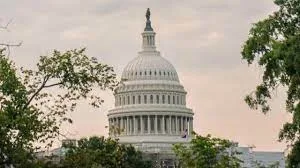A past filled with government closures :The multiple times financing has passed starting around 1980

Washington — Congress has all the earmarks of being barreling toward one more government closure, with conservatives in the House attempting to combine around an arrangement to subsidize bureaucratic organizations past a quick moving toward Sept. 30 cutoff time.
Defied with a broke conservative meeting, House Speaker Kevin McCarthy held chats with his kindred GOP legislators throughout the end of the week to figure out how to stay away from a pass in government financing. Be that as it may, there appeared to be little headway made toward arriving at an agreement on a makeshift measure to keep the public authority working past Saturday night.
All things considered, McCarthy is pushing toward votes this week on four entire year assignments charges, which are probably not going to go anyplace in the Senate. In the upper chamber, the Larger part of Pioneer Throw Schumer is finding a way in his own specific manners to propel what might be the regulative vehicle for a momentary subsidizing measure.
An administration closure happens when Congress neglects to endorse financing for government offices. Before 1980, offices generally kept working during a slip-by in financing with the suspicion that Congress would act rapidly. In any case, in 1980 and 1981, then-Principal legal officer Benjamin Civiletti wrote a progression of legitimate suppositions that found government organizations didn't have the power to keep running during a hole in financing.
President Ronald Reagan administered eight closures during his time in office, the longest of which endured three days. There were three subsidizing holes somewhere in the range of 1990 and 1995, then, at that point, none until 2013.
The danger of an administration closure has become more severe over the last 10 years, as Congress has ended up participating in financing battles that are eventually settled with huge, drawn-out spending bundles. The latest pass in government subsidizing, in late 2018, caused $3 billion in long-lasting misfortunes, as per the Legislative Financial Plan Office. A huge number of government laborers are supposed to feel the effects of a closure on the off chance that an arrangement doesn't arrive this time around.
(Individuals from Congress went against the MX rocket to hold a meeting on the State House steps on June 14, 1983. From left to right: Rep. Edward Markey; Sen.Ernest Hollings; Sen.Alan Cranston; Sen . Grey Hart; Rep.Jim Leach; and Sen.Edward Kennedy)




Comments
Post a Comment